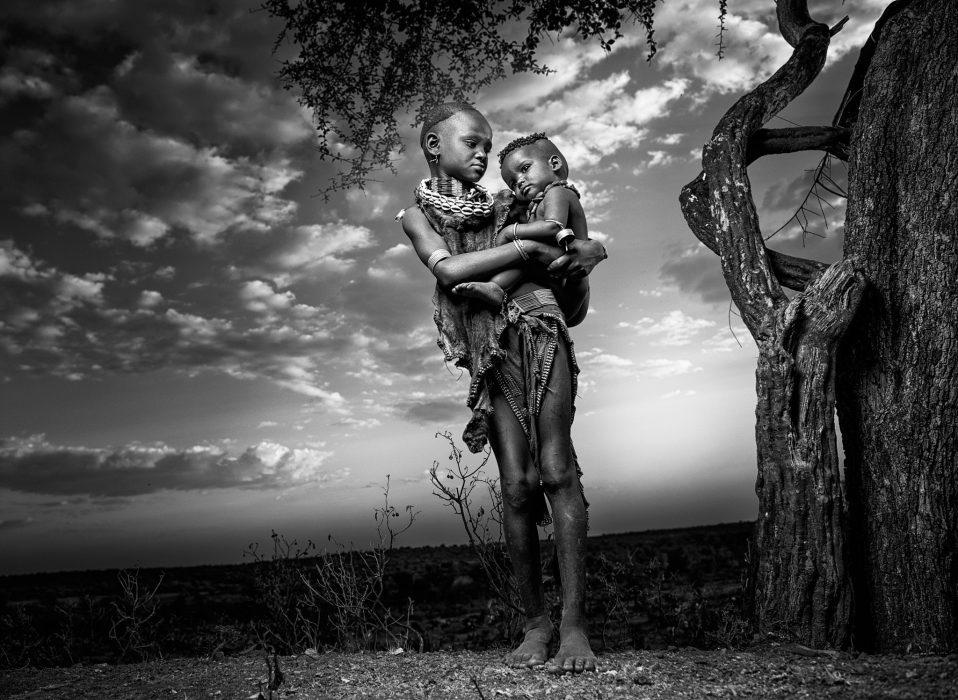Have you ever wondered why teenage pregnancies are on the rise in primary school children especially in western and the coastal regions of Kenya as reported by the media? I’m sure many of us have asked ourselves questions like “What would make such young children engage in sex instead of concentrating in school work?” Some of us would blame and judge these children for lack of morality and focus on their school life!
Well, whereas some of us were privileged to go to school with full support of our parents or guardians, it is common to find some children who lack basic needs including food, clothing, school fee, and shelter for smooth schooling. Amidst these challenges, some children still defy all odds to perform well in schools and become successful; a true reflection of their perseverance, hard work, and resilience. However, the consequences of such hardships in a child’s mental health and development are immense.
For our August blog, I interviewed a guidance and counselling teacher and gained insights into issues affecting primary school children in Kilifi and further discuss how these issues affect the mental health of children and the possible solutions to the problems.
Interviewer: Thank you for joining me in this interview. What is your experience with working with pupils in this school? Which methods do you use to understand the issues pupils face?
Teacher: Primary school pupils present with different issues all the time. Sometimes teachers who are observant quickly realise the change in behaviour in a child and may get concerned to know more about the child’s life. In other instances, children would write down their concerns and place them on the “speaker box” where teachers can pick and read them. Since the children are advised to keep their queries anonymous, the speaker box is the best way to identify the issues the children are struggling with. Therefore, the speaker box got the deepest secrets and struggles that the children face in their daily lives.
Interviewer: What are the common challenges that your pupils face?
Teacher: Firstly, some of the girls in upper primary trade sex for money and that is how they end up getting pregnant and eventually drop out of school. When teachers realize that a child suddenly starts to behave in a different way, first, they try to understand the root cause of the change in behaviour before providing counselling. Later when the issue at hand is clear, teachers always involve the parent about the problem their children presented with so as to find a holistic solution. However, the parents would become defensive and wonder why a teacher would stop their child from having sex for money as that is their main source of income. “What kind of teacher are you? Don’t you realize that this is the only source of food as a family? How else do you want us to survive?” a parent would lament. Efforts to report such cases to the police would most probably be futile because, in the long run, the parent and the perpetrator would negotiate their way and resolve the case out of court.
Interviewer: Mmmmhh… that’s sad. What other problems do the pupils face?
Have you ever wondered why teenage pregnancies are on the rise in primary school children especially in western and the coastal regions of Kenya as reported by the media? I’m sure many of us have asked ourselves questions like “What would make such young children engage in sex instead of concentrating in school work?” Some of us would blame and judge these children for lack of morality and focus on their school life!
Well, whereas some of us were privileged to go to school with full support of our parents or guardians, it is common to find some children who lack basic needs including food, clothing, school fee, and shelter for smooth schooling. Amidst these challenges, some children still defy all odds to perform well in schools and become successful; a true reflection of their perseverance, hard work, and resilience. However, the consequences of such hardships in a child’s mental health and development are immense.
For our August blog, I interviewed a guidance and counselling teacher and gained insights into issues affecting primary school children in Kilifi and further discuss how these issues affect the mental health of children and the possible solutions to the problems.
Interviewer: Thank you for joining me in this interview. What is your experience with working with pupils in this school? Which methods do you use to understand the issues pupils face?
Teacher: Primary school pupils present with different issues all the time. Sometimes teachers who are observant quickly realise the change in behaviour in a child and may get concerned to know more about the child’s life. In other instances, children would write down their concerns and place them on the “speaker box” where teachers can pick and read them. Since the children are advised to keep their queries anonymous, the speaker box is the best way to identify the issues the children are struggling with. Therefore, the speaker box got the deepest secrets and struggles that the children face in their daily lives.
Interviewer: What are the common challenges that your pupils face?
Teacher: Firstly, some of the girls in upper primary trade sex for money and that is how they end up getting pregnant and eventually drop out of school. When teachers realize that a child suddenly starts to behave in a different way, first, they try to understand the root cause of the change in behaviour before providing counselling. Later when the issue at hand is clear, teachers always involve the parent about the problem their children presented with so as to find a holistic solution. However, the parents would become defensive and wonder why a teacher would stop their child from having sex for money as that is their main source of income. “What kind of teacher are you? Don’t you realize that this is the only source of food as a family? How else do you want us to survive?” a parent would lament. Efforts to report such cases to the police would most probably be futile because, in the long run, the parent and the perpetrator would negotiate their way and resolve the case out of court.
Interviewer: Mmmmhh… that’s sad. What other problems do the pupils face?
Teacher: Secondly, some of the children in lower primary, especially boys are sexually molested by guardians. Similarly, girls in lower primary are sexually abused by their close relatives and family friends. Sadly, the people that should protect the children are the ones that turn against them and become the perpetrators. Due to poverty, some parents and even the girls themselves have turned sex to an entertainment industry that they use to earn a living and to obtain basic needs.
Sexual abuse and mental health in children
Sexual abuse refers to multiple forms of sexual violence such as incest, molestation, rape, and other forms of non-consensual sexual abuse. Children who are victims of sexual abuse experience both short-term and long-term consequences that can be devastating and affect them when they become adults. In the short-term, the children who are victims of sexual abuse may show regressive behaviour such as bedwetting or thumb sucking past the appropriate age; behaviour problems and poor academic performance at schools; social withdrawal and refusal to participate in school activities; sleeping and eating problems; and frequent yeast or urinary tract infections.
The victims of child sexual abuse may also suffer long-term effects such as anger at the perpetrator and the adults who did not protect them against the perpetrator; feelings of anxiety in response to people who share the characteristics of the abuser; and difficulties in forming adult relationships due to mistrust and difficulties in sexual functioning in adulthood. Moreover, children who were sexually abused are likely to develop instability in relationships, negativity towards their partners, and having more sexual partners. Other problems include teenage pregnancies, poor parenting styles, and adjustment problems in their own children. Lastly, children who are victims of sexual abuse are likely to experience revictimization later in life.
Mental problems are common in victims of sexual abuse. Children who are sexually abused may develop depression due to feelings of loss of body autonomy which may result to hopelessness and helplessness. Children may also suffer from low self-esteem and low self-worth. Anxiety is common among children who are victims of sexual abuse as they may be overwhelmed by the feelings of revictimization which could lead to panic attacks whenever they face someone with the characteristics of the abuser. Posttraumatic stress disorders may occur as a result of intense memories of the abuse. Sexual abuse can also lead to a disruption of the personality such as borderline personality disorder due to fear of being abandoned.
Although to many of us, the only visible outcome is a pregnancy and we are quick to come up with policies such as the “school re-entry” policy for teen mothers; “return to school” policy; “child care services and boarding facilities” policy, the trauma that sexual abuse leaves the child with lasts for a long time. If the victims do not get the needed psychological help and treatment, children will be in a vicious complicated cycle of issues that will definitely reduce their potential and deem their light.
What should be done?
Child sexual abuse and facilitation of child sexual abuse is a worldwide issue that are both against children’s rights. Therefore, the penalties for child sexual abuse should be strictly adhered to so that abusers are convicted if caught. Moreover, stronger efforts by stakeholders are needed to protect children against sexual abusers and give children a safe environment for learning and development. Given the long-term negative impact of sexual abuse, it is indeed sad to learn that parents or guardians who are custodians of children and are responsible to protect them turn into abusers or use the children to trade sex for money! This is a well-known problem that indicate moral erosion caused by poverty, ignorance, and neglect. There is a need for economic empowerment for parents and guardians to enable them to earn a livelihood, restore their morale and self-respect and for them to take care of their children’s basic needs. Most importantly, there is need for victims of sexual abuse to get the much-needed comprehensive psychological interventions to help them to heal and break the vicious cycle of poverty, sexual abuse, and mental health problems.



